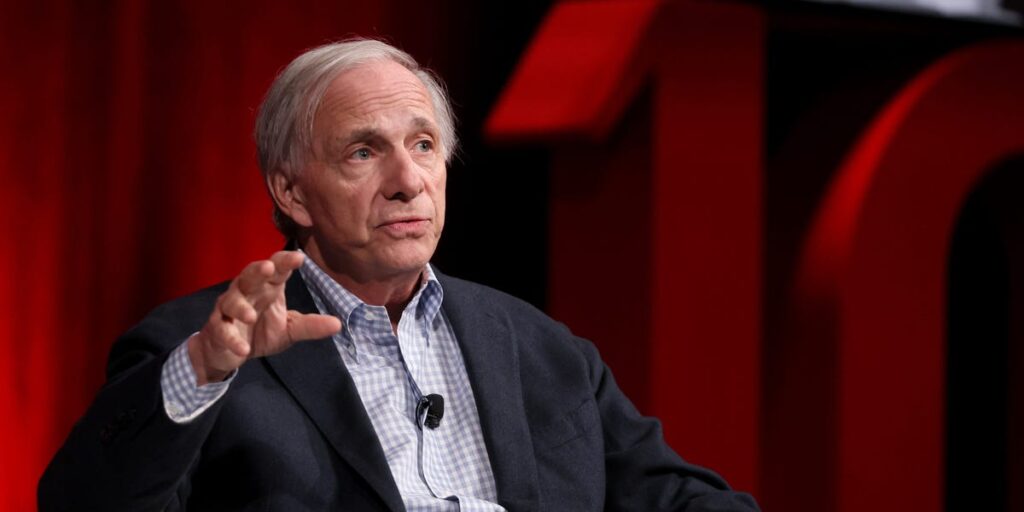Ray Dalio is worried about what AI could do to the world.
In an episode of “The Diary of the CEO” podcast released on Thursday, the Bridgewater Associates founder called AI a “truly fantastic” tool to leverage, but one that will drive inequality.
“There’ll be a limited number of winners and a bunch of losers,” he said. “It’s going to create much greater polarity, which we’re seeing through the system.”
It will lead to “the top one to 10% benefitting a lot. So that will be the dividing force,” the billionaire added.
Dalio founded Bridgewater, the world’s largest hedge fund, in 1975. He has written several books on financial and economic history and has spoken frequently about the soaring debt problems in the US and China.
On the podcast, he said that in a world where humanoid robots and AI can do the jobs of accountants, doctors, and lawyers, people will “fight over about what we do, unfortunately,” and society will need some type of rebalancing policy.
“Certainly there and there certainly needs to be a redistribution policy,” he said. “I don’t think that’s just a redistribution of money policy because uselessness and money may not be a great combination.”
He added that he’s concerned that society may be too fragmented to figure out how this redistribution will work.
Dalio could be referring to a universal basic income model, which has become a keyword in conversations about artificial general intelligence and the need for human work. The system involves giving every citizen a regular, minimum cash payment from the government — no strings attached.
While the concept has gained traction from its roots as a utopian dream, it remains a tough political sell. It is also not yet clear if funding basic income long-term is possible in the US or elsewhere.
OpenAI CEO Sam Altman and AI’s “godfather,” Geoffrey Hinton, who have warned about AI’s potential to eliminate jobs and widen wealth gaps, have advocated for universal basic income.
“I think giving people money is not going to go solve all problems; it’s certainly not going to make people happy,” Altman said on a podcast last year.
“But it might solve some problems, and it might give people a better horizon with which to help themselves, and I’m interested in that,” he said.
Read the full article here


